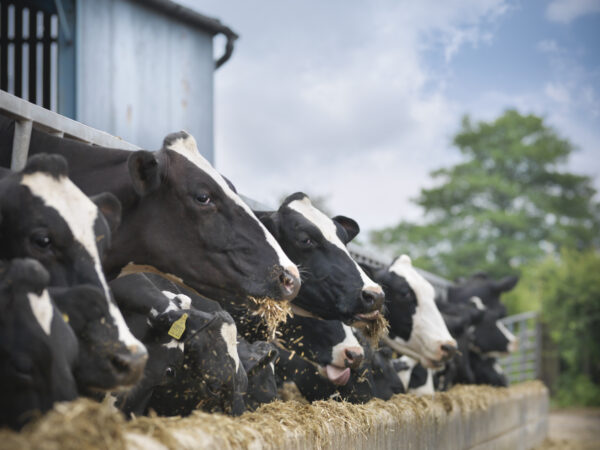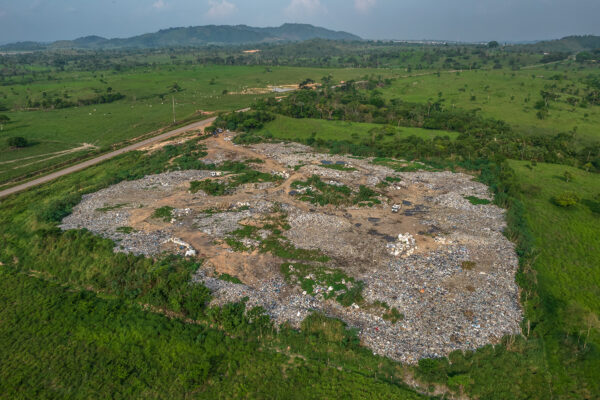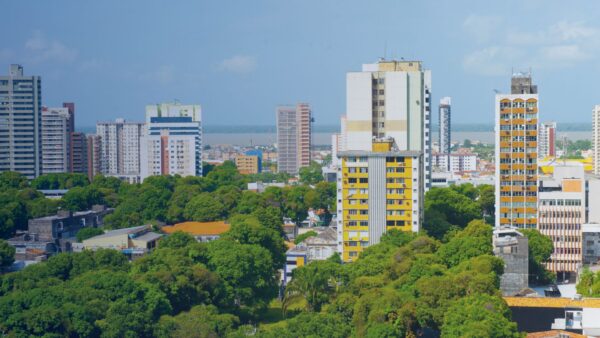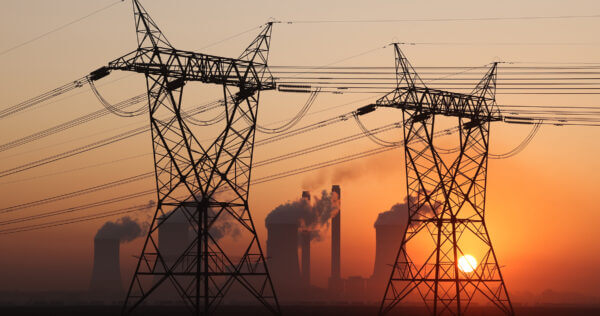Clean Air Task Force at COP30
Charting the Pragmatic Path Forward
Brazil is hosting the 30th UN Climate Change Conference of the Parties (COP30) in Belem from 10 November — 21 November 2025.
As the global climate community convenes in Belem, Brazil for COP30, Clean Air Task Force (CATF) will send a select delegation to champion our pragmatic approach to global climate action—highlighting approaches to decarbonization that strengthen economies, advance innovation, and enhance global cooperation on one of society’s toughest problems.
At CATF, we have long known that climate action, prosperity, and security can and must go hand in hand. Addressing the climate challenge requires confronting hard realities, and developing real, implementable solutions that meet them –- including by expanding the range of available climate solutions, forging new partnerships, and designing policies that deliver for people and economies alike.
Our focus at COP30
At COP30, CATF will focus on five interconnected priorities that comprise our global theory of change:
Driving innovation across the full suite of clean energy solutions
To meet rising global energy demand while reducing emissions, the world must expand—not narrow—the range of available climate solutions. CATF will spotlight the need for greater investment in advanced renewables, carbon capture and storage, advanced nuclear energy, fusion energy, superhot rock geothermal, and zero-carbon fuels.
Aligning climate action with economic growth and competitiveness
Climate policy must deliver durable economic benefits to succeed. CATF will highlight the opportunities for climate action to strengthen national and regional economies, create jobs, and build resilient, competitive clean industries.
Championing regional pathways and global cooperation
Every region’s path to decarbonization will look different. CATF will work to advance regionally tailored approaches that reflect local economic realities, political dynamics, and resource endowments—while promoting the partnerships and cooperation needed to accelerate progress.
Mobilizing fast action to cut methane pollution
Reducing methane emissions is the fastest and most cost-effective way to slow global warming today. CATF will push for stronger implementation of the Global Methane Pledge and advocate for concrete action to cut emissions across the energy, waste, and agriculture sectors.
Building trust and collaboration across the global energy ecosystem
CATF will convene governments, industry leaders, financial institutions, and civil society to build consensus around pragmatic, innovation-centric pathways to net zero.
Our message to global leaders
Climate action, prosperity, and security can and must go hand in hand.
By pursuing pragmatic, innovation-driven policies, countries can strengthen their economies, improve energy security, expand energy access, and unlock global prosperity.
At COP30, CATF will:
- Champion pragmatic, technology-inclusive climate solutions that enable competitiveness and prosperity.
- Spearhead and mobilize global action to cut methane emissions across key sectors.
- Highlight the importance of regionally sensitive, cooperation-driven climate strategies.
- Provide expert insight on clean energy innovation, methane mitigation, and policy design.
- Demonstrate that effective climate action is both achievable and beneficial for people and economies everywhere.
Events
For speaking engagement inquiries, please contact Mary Louks.
COP30 Climate and Energy Declaration Tracker
This interactive tool was created to provide clear, accessible insights into the commitments made by countries, NGOs, and other stakeholders at COP30. The tracker is designed to help users navigate the complexity of COPs by offering a streamlined way to explore key declarations.

About COP30
Hosted in Belem, Brazil, COP30 will be the first UN Climate Conference held in the Amazon region—offering a powerful setting to underscore the connection between climate, biodiversity, development, and energy. As nations prepare to update their Nationally Determined Contributions (NDCs) under the Paris Agreement, COP30 provides a pivotal opportunity to translate ambition into implementation, aligning global climate action with economic growth, equity, and resilience.
News from COP30
Please contact Troy Shaheen or Natalie Volk for media and press inquiries.
CATF experts on the ground at COP30
 |
Jonathan Banks, Global Director, Methane Pollution Prevention |
 |
Fernanda Ferreira, Director, Agriculture Methane |

|
Brian Mukhaya, Program Manager, Energy and Climate Innovation, Africa |

|
Malwina Qvist, Director, Nuclear Energy Program |
 |
Troy Shaheen, Global Director, Communications & Marketing |
 |
Rebecca Tremain, Director, United Kingdom (UK) |
 |
David Yellen, Director, Climate Policy Innovation |
COP30 FAQs
Find answers to your common questions around COP30,
What is COP?
The Conference of the Parties (COP) is an annual climate conference hosted by the United Nations Framework Convention on Climate Change (UNFCCC), an international environmental treaty adopted by countries all around the world in 1994 to address the issue of climate change. 198 Parties have ratified the agreement (197 countries plus the European Union), representing almost universal global involvement.
The objectives of the UNFCCC are to stabilize greenhouse gas concentrations in the atmosphere “at a level that would prevent dangerous anthropogenic (human induced) interference with the climate system”. COP serves as a yearly meeting of the Parties to the UNFCCC to discuss progress and action toward achieving these goals.
Why is COP important?
COP provides an important mechanism for ratcheting up ambition, accountability, and action – while increasing coordination between Parties and wider stakeholders. The climate challenge requires multinational, multisectoral cooperation, and international fora can accelerate action — elevating the voices of those most vulnerable to climate change’s impacts on an international stage, creating opportunities to foster cooperation between countries who might otherwise be at odds, and providing a forum through which to ask and work through difficult questions.
Where is COP held?
COP is hosted by a different country each year and typically rotates through different geographic regions. The first meeting (COP1) took place in Berlin, Germany. COP28, in 2023, was held in Dubai, UAE.
In 2025, the 30th session of the Conference of the Parties (COP30) to the UN Framework Convention on Climate Change (UNFCCC) will be held in Belem, Brazil.
When did COP start?
The first COP was held in Berlin in 1995.It was a milestone that set the stage for future protocols and agreements for nations to curb greenhouse gas emissions.
Who takes part in COP?
COP brings together tens of thousands of diplomats, ministers, and negotiators from nearly 200 countries. The conferences are also attended by representatives from civil society, business and finance leaders, academic experts, international organizations, activists, and the media.
What has been achieved at previous COPs?
Several landmark commitments, treaties, and funding mechanisms have emerged from these annual meetings.
At COP3 in Kyoto, Japan, the Kyoto Protocol was adopted with a commitment to reduce emissions of greenhouse gases in industrialized countries. The Kyoto Protocol was ultimately replaced by the Bali Roadmap in 2007 (which included all countries rather than just industrialized nations) but laid an important foundation for later agreements.
In 2015, at COP21, the Paris Agreement was unanimously adopted, aiming to keep the rise in the global average temperature to 2 degrees Celsius above pre-industrial levels, and ideally to 1.5 degrees Celsius. It also included provisions to strengthen the ability to adapt to climate change and build resilience and align all finance flows with “a pathway towards low greenhouse gas emissions and climate-resilient development.” As part of the Paris Agreement, countries agreed to set emissions reductions targets and communicate these targets to the UNFCCC in the form of nationally determined contributions (NDCs).
At COP24 in Katowice, Poland, Parties agreed the Katowice Climate Package, which sets out procedures and mechanisms to make the Paris Agreement operational. This includes implementation guidance for NDCs, for reporting on adaptation and climate impacts, and how to conduct the Global Stocktake to assess overall progress towards the Paris Agreement aims.
At COP26 in Glasglow, UK, the Glasgow Climate Pact for the first time called on all nations to phase down unabated coal power and inefficient subsidies for fossil fuels. It also saw the launch of the Global Methane Pledge, where over 115 countries committed to reducing methane emissions by 30% by 2030. Methane is a harmful climate pollutant that must be mitigated alongside carbon dioxide to prevent near term warming and avoid passing potentially irreversible climate tipping points.
At COP28 in Dubai, UAE, the final negotiated text recognized the need to transition the global energy system by advancing a wide range of clean energy solutions and rapidly cutting methane emissions — while acknowledging the need for regionally tailored approaches that contend with economic and geopolitical realities. Outside of the negotiating room, COP28 broke new ground with major commitments around methane mitigation, nuclear energy deployment, oil and gas decarbonization, fusion energy, and more.

Increase your impact by supporting our work
As a CATF supporter, you’re investing in durable climate policies
rooted in science and built to last.
For partnership inquiries, please contact Harlan Cutshall.




































